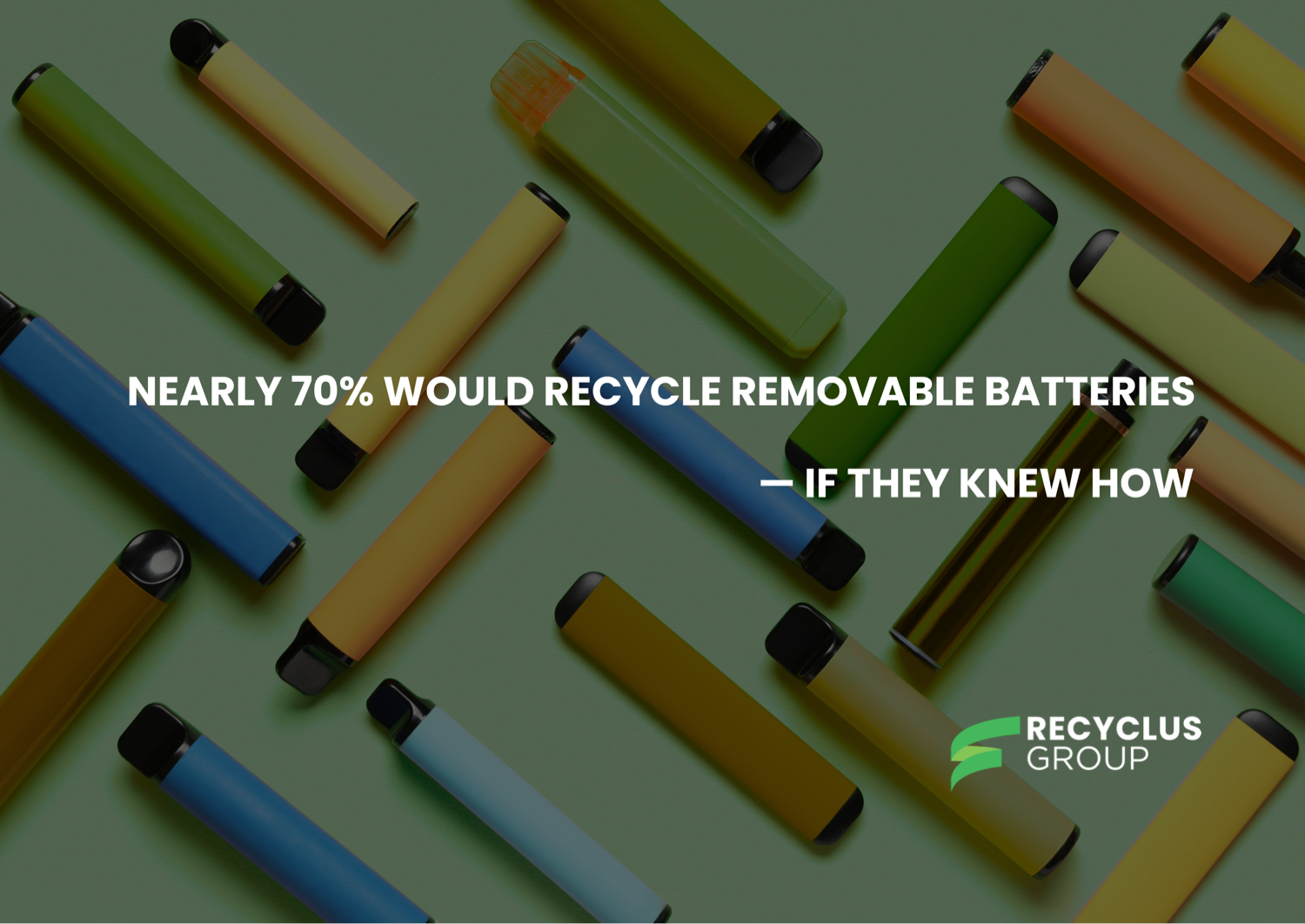Preventing the Next Battery Fire: Urgent Action Needed in the UK

In 2023, over 1,200 fires at UK waste and recycling facilities or in collection vehicles were reported or suspected to have been caused by batteries, an alarming 71% increase from 2022.
The damage plus lost time from these incidents is estimated at £158 million. Many of these fires are entirely avoidable. This is the stark warning from the Chartered Institution of Wastes Management (CIWM) in its white paper “An EPR of Everything, Starting with Batteries.”
Key Findings from the CIWM White Paper
The white paper, based on research commissioned by CIWM, lays out three fundamental reasons why so many high-powered rechargeable batteries are ending up in general rubbish instead of safe collection streams.
1. Lack of clear, impactful consumer information
o There is insufficient educational material and awareness campaigns at the point of purchase or disposal. Consumers often don’t realise items contain powerful rechargeable batteries.
o Confidence and knowledge are particularly low for smaller, cheaper items with built-in rechargeable batteries, e.g. toothbrushes, vapes, toys.
2. Proliferation of batteries in everyday products
o Items with rechargeable batteries are now far more common, and in many of them the battery is non-removable or hidden, so consumers do not instinctively treat them as battery-waste or hazardous when disposing.
3. Gaps in Battery Legislation and Risk Coverage
o The EU Batteries Regulation (2023/1542) has replaced the old Batteries Directive, creating new categories (portable, industrial, EV, SLI, and light means of transport) and chemistry-specific rules on recycled content, recovery targets, and labelling. However, these measures have only recently entered the transition phase, with most waste management obligations coming into force in August 2025.
o In the UK, battery producer responsibility regulations date from 2009 and do not fully differentiate between chemistries; reported recycling evidence remains dominated by lead-acid batteries, which represent only about 3% of the market.
Consumer Behaviour & Attitudes
Here are some of the findings on what consumers say and do, and how this contributes to the problem.
- Disposal of electric toothbrushes: ~40% of people choose a ‘wrong’ disposal option when asked how to dispose of an electric toothbrush.
- Removable batteries: nearly 70% of respondents say if the batteries can be removed, they would use a retailer-take-back or collection point for disposal.
- Support for deposit return scheme (DRS):
o 51% say they would use such a scheme on “all or most occasions.”
o An additional 32% would use it “on some occasions”.
CIWM’s Policy Recommendations
Here are the main recommendations from the white paper:
- Introduce Extended Producer Responsibility (EPR) for all batteries and products containing batteries, with duties placed on manufacturers/retailers to take back, collect and recycle safely.
- Implement chemistry-specific recycling targets, recognising that different battery chemistries (e.g. lithium-ion, nickel, etc.) pose different risks and require different handling.
- Roll out a deposit return scheme specifically for batteries and battery-containing products, especially targeting smaller items that are regularly mis-disposed.
- Improve consumer information at point-of-sale and disposal, and fund awareness campaigns so consumers understand hazard, safe disposal, and the value of returning batteries correctly.
How Recyclus Group is Addressing These Issues
We believe in aligning with CIWM’s diagnosis, and most importantly in delivering real, scalable solutions. Recyclus Group is stepping up with two proven capabilities:
A) LiBatt – Industrial-Scale Lithium-ion Battery Recycling
- Operational since July 2023, LiBatt processes lithium-ion batteries of any chemistry and condition at industrial scale.
- We recover critical raw materials like lithium, cobalt, nickel, and manganese, diverting them from waste, reducing raw mineral extraction, and enabling circular use.
- This addresses one major gap CIWM raised: many non-lead acid rechargeable batteries are not being sufficiently recycled. LiBatt helps close that gap.
- LiBatt operations are designed to align with upcoming EU and UK chemistry-specific recycling standards.
B) LiBox – Safe Storage & Transport for End-of-Life and Damaged Batteries
- UN certified and ADR (European agreement on dangerous goods) compliant packaging, designed to safely store and transport lithium-ion batteries, especially those which are damaged or have potential for fire risk.
- This mitigates risk in the collection and logistics chain, precisely where many incidents occur.
The Need for Greater Awareness and Urgent Action
CIWM’s findings are impossible to ignore: battery fires, environmental damage, and escalating costs are the direct consequence of gaps in regulation and low public awareness. The message is clear, without swift change, the risks will only intensify.
At Recyclus Group, we have already built the future the white paper calls for. Now, we’re scaling operations to meet growing demand. LiBatt delivers industrial-scale recycling to recover critical raw materials and keep hazardous batteries out of waste streams. LiBox ensures the safe storage and transport of even the most damaged batteries, protecting people, property, and the environment.
We need stronger regulation, informed consumers, and accountable producers working together. With the right framework, the UK can transform battery waste from a growing hazard into a valuable resource.
